From hurricanes to massive crop failures and foreign trade issues, there is a very real chance that we will be facing either short or long term food shortages.
Preparing for both scenarios now is very important while basic supplies are still available. The better and more detailed your plans are, the better chance you will have of getting foods that work for you without wasting money and time on things that you cannot consume in a time of need.
Understand Your Unique Dietary Needs
Allergies aside, there are bound to be some foods that you are able to digest better than others. As a case in point, many people have problems with beans, nuts, rice, and cabbage. Other people have a hard time digesting dairy, or grains. No matter why this is happening, there is no point to storing away foods that are going to make you feel sick or weak simply because they are easy to store or cheap.
Here are the basic steps:
- Start off by making a list of foods that you enjoy the most, and how you like them prepared. In the next column, make a note of which food groups (dairy, meat, fruits/vegetables, grains) are included in the food and the approximate percent. Now add up all the percents for each food group to see what your natural instincts are in terms of ratios of these foods in relation to each other.
- List all the foods you eat for at least 1 month. Once again, break them down by percents of each food group to see how your actual diet compares to what you feel most comfortable eating.
- In some situations, it is likely that you have a higher ratio of “unhealthy” foods on your preferred or current food consumption list. Do some research on blood type diets, metabolic diets (such as low carb, gluten free, and paleo), and how medical conditions, prescription drugs or herbal remedies may be affecting your digestive system and preferences[1]. In particular, there is some interesting research[2] coming out on how all these things influence the bacteria[3] in your intestines, and how they, in turn, influence how you digest food. Depending on the situation, a probiotic or careful changes to your diet may make it easier to digest foods that are more in line with what you would want to store away for use during major and minor food shortages.
- Finally, make a list of the foods you would like to store away and be able to use during an emergency. Unless you are allergic to something that is a common staple, go ahead and list anything that you feel would be practical in a time of need.
Explore What You Can and Can’t Tolerate
Once you know where you are and where you want to be in terms of a survival diet, your next step will entail making changes so that you can live comfortably on a survival diet. For example, if you can’t eat nuts, try preparing them in different ways. While you may usually eat nuts raw, you actually get the most nutrients from them when they are boiled or soaked overnight until they become soft. If either of these preparation methods make nuts more digestible, then you have just opened up one of the best survival foods for use in a time of need.
Here are some other things you can do to make it easier to tolerate foods that you often stay away from:
- Try new or unusual foods – more than a few meat eaters think they will be able to eat plants and stay healthy during a major crisis. While vegan and vegetarian diets are wonderful diets, they are not so easy to adapt to. It can take several months to purge your body of toxins from commercial foods. Your body also needs time to adapt to getting proteins and other nutrients from non-animal resources. In a situation where you have little or no time for this adaption process, hunting, fishing, and consuming insects may be the only way to keep yourself alive and well. Since edible insects are very cheap and easy to raise, this is a good time to try eating them and finding out how best to tolerate them from a digestive perspective.
- Cook the foods differently – did you know that microwave cooking can literally make you sick? As much as I love potatoes, I used to have a very bad habit of cooking them in the microwave. Invariably, that resulted in numerous headaches that led me to think I could not eat potatoes. Shifting to boiling or baking them resolved my headaches. In a similar way, you may find that using different cooking methods, or even a different type of cooking oil may make it easier for you to consume beans or other foods you normally have problems with.
- Use a probiotic – if you have been eating all kinds of junk food, taken antibiotics, or used other drugs that damage the good bacteria in your intestines, then you may need a probiotic to help you regain good digestive health. There are many different kind on the market, as well as foods that naturally have probiotics in them.
- Try adding herbs that ease digestive issues – let’s say you have a very hard time eating beans. Aside from soaking and cooking them slowly, you can also add ginger, cumin, or fennel to help with digestive issues[4]. When doing research on specific foods, look at recipes from countries where they originate. Pay careful attention to the spices used in these recipes. Aside from making the foods taste better, they may also be the key to making each item more digestible.
Devise Ways to Pre-Cook Your Optimal Foods
While nuts, dried beans, dried fruits/vegetables, and seeds are easy to store, other items on your list may be a bit difficult. In particular, storing meat and dairy may present a challenge if you don’t take care of it while the foods are still fresh enough to process.
Learn Forgotten Recipes On How To Make The World’s Best Superfood
Here are some ways to extend the shelf life of perishable items that you may want to keep in your food stockpile:
- Water bath canning – this method can be easily used for fresh fruits and vegetables. You can also try canning meats, but make sure you know how to do so safely.
- Salting – works best for meats and some vegetables.
- Dehydrating – this is an excellent way to store fruits and vegetables that can be ground up and then reconstituted for soups and smoothies. No matter what is on sale at the supermarket, chances are you can make something useful that can be stored away for later use in a dehydrator.
- Smoking – this method works well for meat and fish. Even if the food is a bit tough, you can still boil it later on or grind it up for use in stews and soups.
- Fermentation – while many modern cheeses must be stored in the refrigerator, there are others that can improve with age at temperatures you might have in a basement or root cellar. Wines, beers, and drying sourdough yeast cultures are also very good ways to store foods that can be used for long and short term survival needs.
Follow Through With Sustainable Methods
The worst thing you can do is purchase large quantities of food, and then rely on a refrigerator or freezer to keep them in edible condition. From power failures to equipment breakdowns, these methods can leave you starving at the worst possible moment. When choosing food preparation methods, make sure that you can store the foods away without relying on refrigeration.
Let’s say you decide to purchase several pounds of nuts, seeds, and dried beans. Let’s also say you live in a home where it is difficult to control the temperature during the summer months. Under proper conditions (as in temperatures ranging between 40 and 60 degrees), these foods can last for years. Higher temperatures will destroy them in a matter of months.
Regardless of how you prepare your foods for long term storage, having a cool, dark, dry location is essential. If you have no room under the house to store food, then try to find some way to dig a root cellar. Failing that, you can try building an insulated tub or other structure where you can make use of salt and ice or other mechanisms to keep the foods as cold as possible without using electricity. This includes using zeer pots or similar methods.
Many people don’t realize is just how easy it is to get sick on foods that they aren’t accustomed to eating. When it comes to choosing foods for long and short term emergencies, integrating your choices into your diet as quickly as possible is the best way to stay healthy and fit during a food shortage.
Resources
[1] https://www.ncbi.nlm.nih.gov/pmc/articles/PMC4425030/
[2] https://www.ncbi.nlm.nih.gov/pmc/articles/PMC6520976/
[3] https://www.ncbi.nlm.nih.gov/pmc/articles/PMC4583329/
[4] https://www.savvyvegetarian.com/vegetarian-advice/eat-beans-without-gas.php


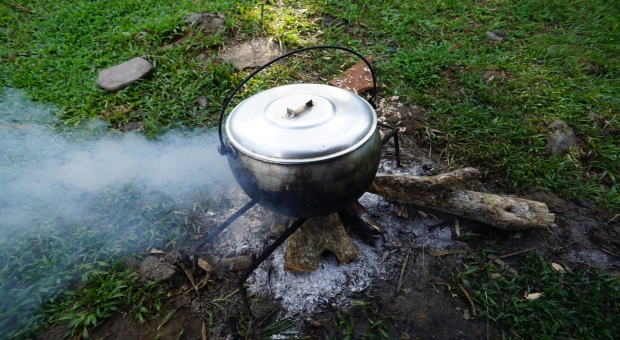

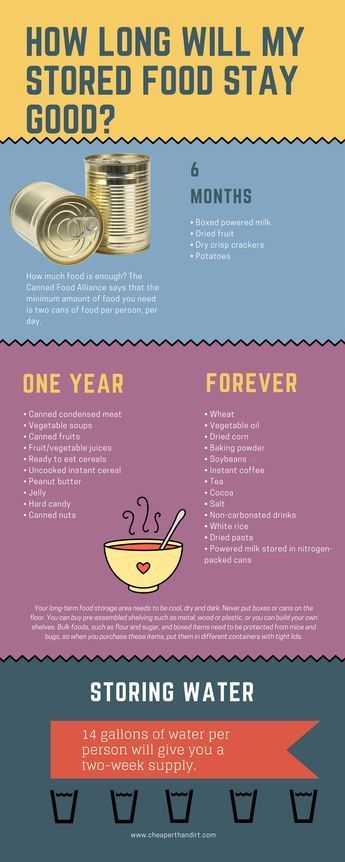

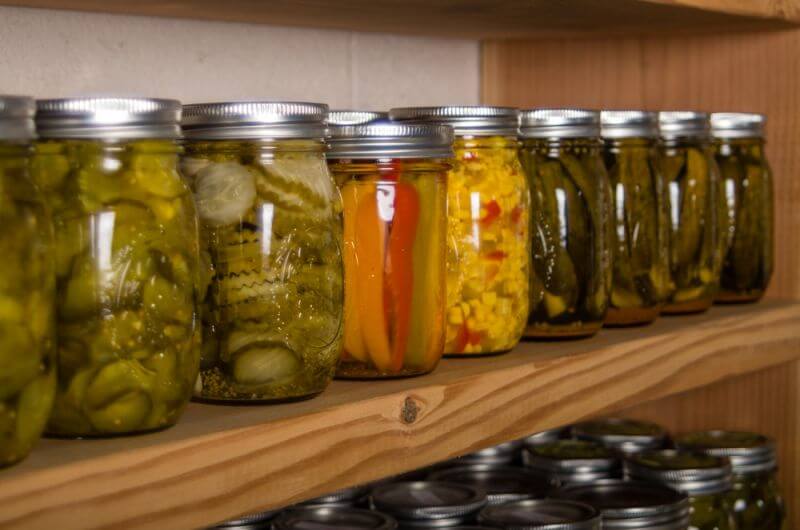
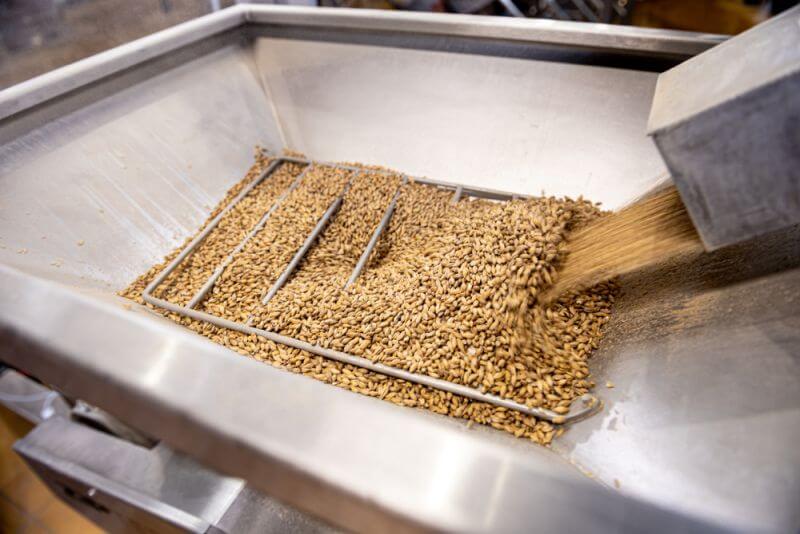
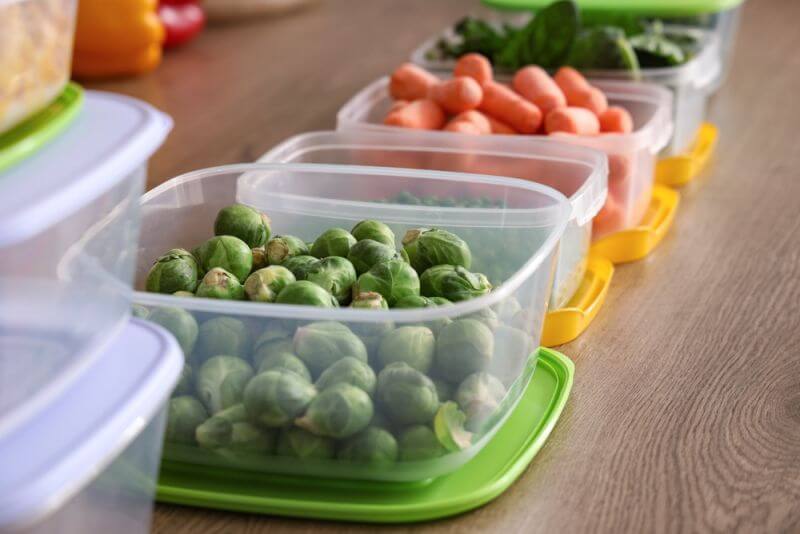
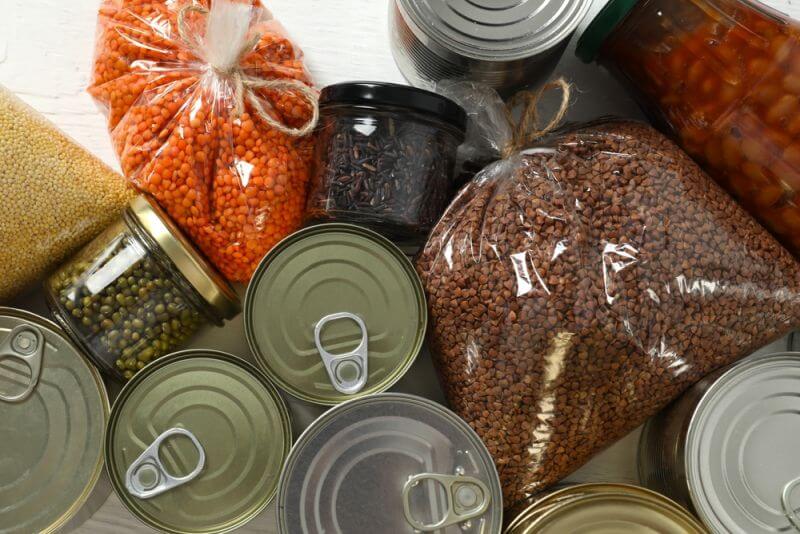

William Halford | November 1, 2019
|
In the list of foods that last for a year, “canned condensed meats”?